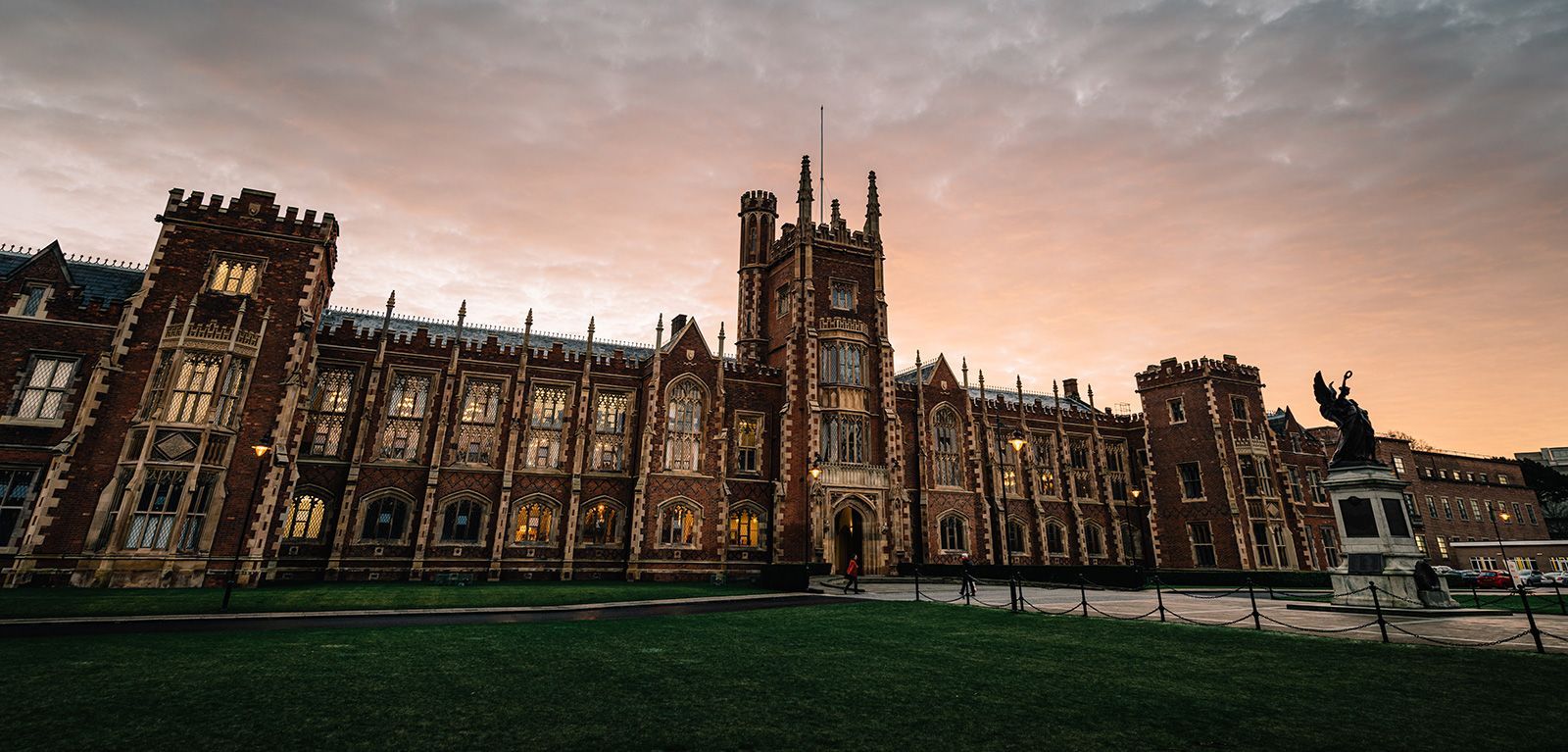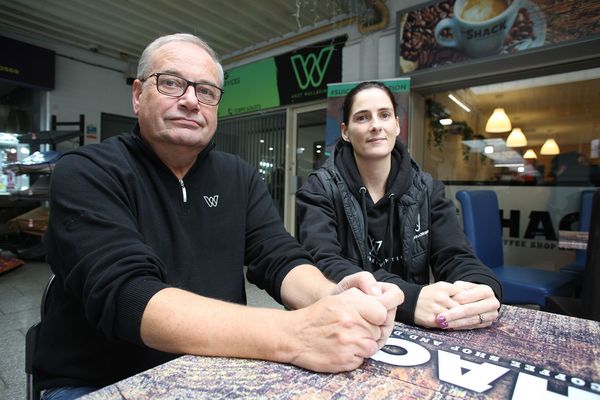AN Irish language residential scheme has launched at Queen’s University for the 22/23 academic year. The scheme has been introduced following a series of campaigns by the university’s Irish language society, An Cumann Gaelach.
The university has stated that it is a pilot residential scheme, providing a maximum number of 12 places for students studying Irish.
Similar schemes are available at other universities in the country such as Trinity College Dublin, University College Dublin and NUI Galway.
TCD offers first year students 12 spaces, and 18 spaces are available to students from second to fourth year. UCD offers scholarships to 24 of their students, 12 of which are first years.
Both universities advertise these opportunities widely with Trinity stating ‘‘the scheme aims to offer students an opportunity to live in a mini-Gaeltacht in university accommodation".
At present, Queen’s University’s website does not publicise the residential scheme on their accommodation website to the public.
We spoke with members of An Cumann Gaelach’s committee, President Fionnuala Nic An Bhiócaire and Secretary Dara Ní Chaoimh on the success of their campaign and their fight for bilingual signage going forward.
‘‘I’m absolutely delighted about the Irish language residential accommodation, despite the fact that it’s a pilot scheme, I think that it’s a very positive development for the Irish language," said Dara.
‘‘When I started university in 2017, there was nothing like this available to students and as an Irish speaker, a Gaeilgeoir and as someone who was studying Irish I would have really loved to have availed of something just like this.
‘‘I think it’s really important to recognise how big of an achievement this is."
Fionnuala said: "I have been at Queen’s for seven years now and from the start campaigning for bilingual signage was the main goal and that is still ongoing and has been going on a lot longer than seven years.

‘‘In that time, I have seen how Queen’s speak about the Irish language, how misrepresented it was, seeing words like provocative, intimidatory, thrown around about it."
In 2018 the Vice-Chancellor of Queen’s Professor McElany suggested erecting bilingual signage on the campus would breach the university’s diversity and equality policy. He later apologised for any offence caused.
‘‘It’s just sad we haven’t actually been able to get bilingual signage because there is no representation of the language around the university. We have had so many rallies, we have shown the university the demand for it, and there is still nothing.
‘‘Last year, An Cumann Gaelach got together with Dearcán an activist group, and put together everything on the residential scheme. There was so much work in the background. When it was ready to go, we organised meetings with the university and they came back originally and said no.
⭕️🚨 SCÉIM CHÓNAITHE OLLSCOIL NA RÍONA 🚨⭕️
— An Cumann Gaelach QUB (@CumannQub) November 24, 2021
Físeán tacaíochta don scéim chónaithe atá molta againn d’Ollscoil na Ríona. Anois an t-am. 1/4 pic.twitter.com/wjuMOx72mo
‘‘When we posted on our social media that they had refused, they contacted us straight away. They also denied that they said no," says Fionnuala.
‘‘Getting the approval for the residential scheme has not been easy in the slightest. We attended several meetings with Queen’s management discussing what we would like to see achieved such as bilingual signage, the residential scheme,’’ continues Dara.
‘‘For example, we were told that the residential scheme would be approved but bilingual signage would not be approved, and no progress would be made on it until an Acht Gaeilge. That’s not to say that they were promising that there would be progress if an Acht Gaeilge was achieved either.
GRMA as an tacíocht leanúnach✊🏼⭕️ https://t.co/fzyhHsO4Kl
— An Cumann Gaelach QUB (@CumannQub) December 1, 2021
‘‘We’re obviously delighted to have achieved the residential scheme but we will continue our campaign until bilingual signage is achieved back at Queen’s. There are people who have come before me, there will be people who have come after, but bilingual signage will be back at Queen’s, it’s just going to take more work and more campaigning.’’
Fionnuala added: ‘‘For Gaeilgeoirí coming in, they can’t even have Irish signage outside the Irish halls because they won’t give us bilingual signage.
‘‘The university has stated that it can’t change the way they allocate halls, but the majority of our Cumann Gaelach every year are people from Belfast and these people can’t actually apply to get these halls. It’s difficult because you have a lot of people coming from Coláiste Feirste who won’t be able to apply for it.
‘‘It’s obviously so good that we’ve got this, it’s going to be so good for this year, but it’s back to campaigning now. At some of our last rallies we had so many people attending, bus loads from Derry, young kids coming to support it, and there will be people after us who will continue fighting for the bilingual signage.

‘‘An Cumann Gaelach’s goal is for Irish to be represented around the university and currently it is not at all and you don’t see it anywhere, the more we’re out and campaigning and just being active about it all, the more pressure on the university,’’ stated Fionnuala.
Kathleen Ní Nualláin from Leitrim, Co. Down, has recently been accepted to the Irish language accommodation at Queen’s. Speaking with the Andersonstown News she said: "I've been raised with Irish from birth, it's my native tongue and the language I use with my family. I'm so happy to be able to go to university and continue to speak Irish in a new and bigger family of Gaeilgeoirí.
‘‘I'm really grateful to those who have campaigned for, fought for and secured our rights as Irish speakers, my parents have been doing that all my life; but of course, it's disappointing that we have to constantly fight for the most basic rights that others get as a matter of course.’’
We're launching a scheme @QueensAccomm for students studying #Irish. The pilot is designed to support their studies & was developed in response to a formal request by staff, students & alumni, to create a scheme similar to those at other universities. @QUBAlumni @QUBStaff @QUBSU
— Queen's University Belfast 🎓 (@QUBelfast) August 26, 2022
In their statement Queen's University said: ‘‘The pilot will provide up to a maximum number of 12 places for students studying Irish. If there are remaining spaces available, these will be offered to other students who have indicated a preference to live with Irish speakers and who have confirmed they speak the language.
‘‘The initiative was developed earlier this year in response to a formal request by staff, students and alumni to create a programme similar to those already in place at other universities.
‘‘Following approval by Queen’s Senate, the scheme is being implemented with the aim of providing students with an environment to speak the Irish language daily and to encourage and support the use of the language in the students’ personal and social lives outside of the study environment.
‘‘Those students who select this accommodation option will need to meet the same eligibility criteria as all other students as set out in the current University allocation policy.’’








